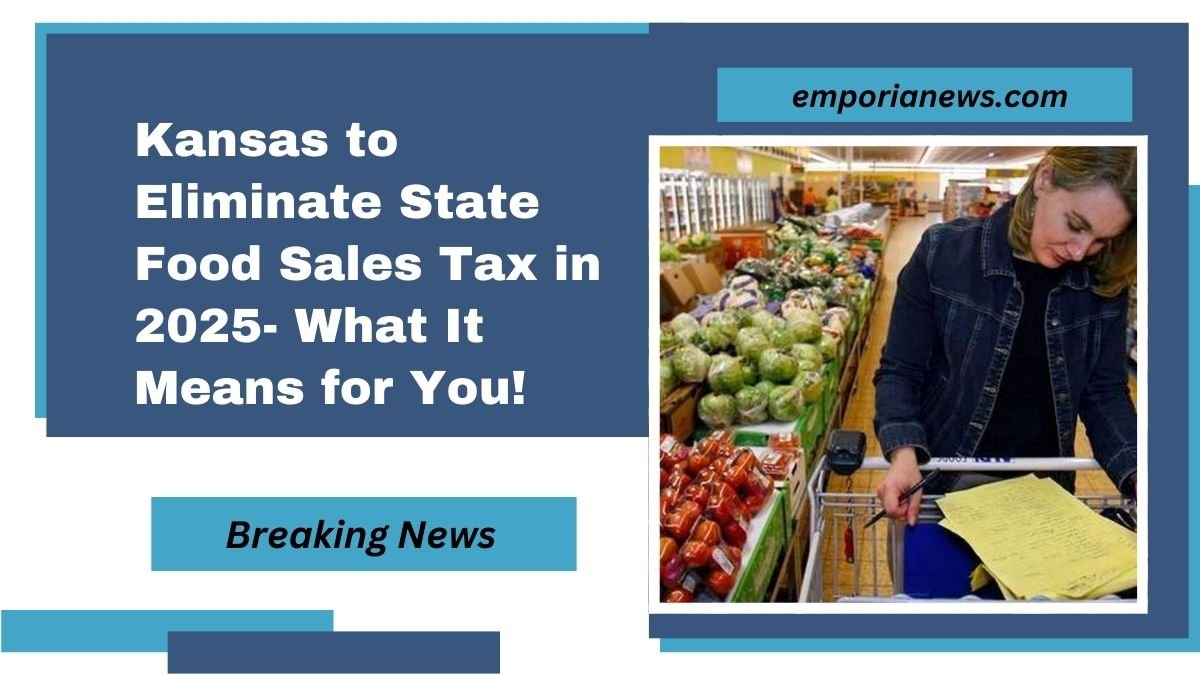In a significant move aimed at alleviating financial burdens on residents, Kansas is set to eliminate its state food sales tax by January 1, 2025.
This legislative change is expected to have widespread implications for consumers, retailers, and the state’s economy. Understanding the details of this tax elimination will help you navigate the upcoming changes effectively.
Understanding the Current Food Sales Tax
As of now, Kansas imposes a state sales tax of 6.5% on groceries, one of the highest rates in the nation. This tax applies to most food and beverage items purchased for home consumption, including staples like bread, milk, fruits, and vegetables. Local jurisdictions may also levy additional sales taxes, increasing the total tax burden on consumers.
The Path to Tax Elimination
The journey toward eliminating the state food sales tax began with legislative efforts to reduce the financial strain on Kansas households.
In 2022, the Kansas Legislature passed a bill outlining a gradual reduction of the food sales tax, with the ultimate goal of complete elimination by 2025. The timeline for this reduction is as follows:
| Date | State Food Sales Tax Rate |
|---|---|
| July 1, 2022 | 4.0% |
| January 1, 2024 | 2.0% |
| January 1, 2025 | 0.0% |
Implications for Consumers
The elimination of the state food sales tax is poised to provide direct financial relief to Kansas residents. For example, a family spending $500 monthly on groceries would save approximately $32.50 each month, equating to $390 annually.
These savings can be redirected toward other essential expenses, thereby enhancing the overall purchasing power of households across the state.
Impact on Retailers and Businesses
Retailers and grocery stores will need to adjust their point-of-sale systems to accommodate the tax changes. This includes updating software to reflect the elimination of the state food sales tax and ensuring that any applicable local taxes are correctly applied.
Businesses should also train staff to handle customer inquiries regarding the tax changes and ensure compliance with the new regulations.
Considerations for Local Taxes
While the state food sales tax will be eliminated, local sales taxes imposed by cities and counties may still apply to grocery purchases. These local taxes vary by jurisdiction and can range from 1% to 4%.
Consumers should be aware that, depending on their location, some level of sales tax may still be added to their grocery bills.
Economic Impact on the State
The removal of the state food sales tax is expected to reduce state revenue by approximately $450 million annually. To offset this loss, the state government has proposed measures such as reallocating funds from other areas and implementing cost-saving initiatives.
The economic impact will be closely monitored to ensure that essential public services remain adequately funded.
Preparing for the Change
As January 1, 2025, approaches, both consumers and businesses should take steps to prepare for the elimination of the state food sales tax:
- Consumers: Review your grocery budgets to account for the anticipated savings. Stay informed about any local sales taxes that may continue to apply to your purchases.
- Businesses: Update point-of-sale systems and accounting practices to reflect the tax changes. Communicate with customers about the elimination of the state food sales tax and any remaining local taxes.
The elimination of Kansas’s state food sales tax represents a significant policy shift aimed at reducing the financial burden on residents.
By understanding the details and preparing accordingly, consumers and businesses can navigate this transition smoothly and take full advantage of the benefits it offers.
Will all food items be exempt from sales tax after January 1, 2025?
The state food sales tax will be eliminated; however, certain prepared foods and beverages may still be subject to local sales taxes.
How can I find out the local sales tax rate in my area?
You can check with your city or county tax authority or visit the Kansas Department of Revenue’s website for detailed information on local tax rates.
Will restaurants and cafes still charge sales tax on food and beverages?
Yes, prepared foods and beverages sold by restaurants and cafes will continue to be subject to applicable state and local sales taxes.




